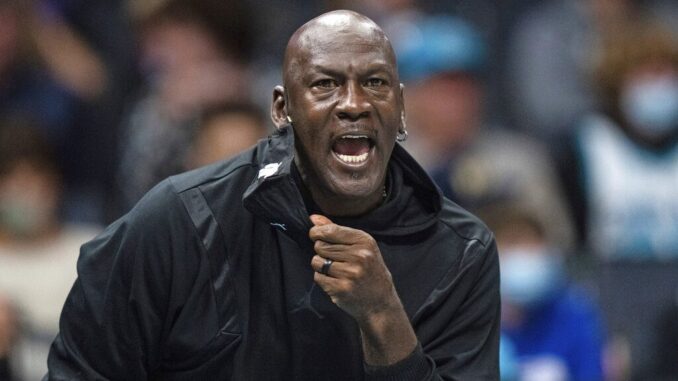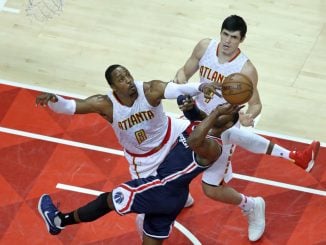
CHARLOTTE — It’s been 13 years since Michael Jordan paid $275 million for a majority stake in the Charlotte Bobcats.
While the NBA legend is arguably the greatest basketball player to ever step on the hardwood, his success as a player, league ambassador and shoe mogul have not necessarily led to wins for the now-Hornets.
During Jordan’s ownership tenure, Charlotte has recorded a 419-595 record, three winning seasons, two trips to the playoffs and — most importantly — zero postseason series wins.
Now as the Hornets sit with a 23-50 record (14th place in the Eastern Conference standings) in yet another underwhelming season, the team’s fans might soon see a change in ownership after over a decade of disappointing results.
On March 16, ESPN’s Adrian Wojnarowski reported that Jordan has been involved in “serious talks” to sell his majority stake in the franchise to a group led by Hornets minority owner Gabe Plotkin and Atlanta Hawks minority owner Rick Schnall.
Jordan, a six-time NBA champion and five-time MVP, would potentially remain in the picture as a minority stakeholder in the franchise while Plotkin and Schnall would be installed as co-governors of the Hornets.
Plotkin is the former chief investment officer of Melvin Capital, an infamous hedge fund operation that had to close its operations in 2022 after losing billions following a meme stock saga in 2021. In what became a generational event for stock traders, Melvin famously shorted GameStop, losing undisclosed billions as retail traders drove the stock price up.
By comparison, Schnall is the seemingly innocuous half of the partnership duo; the Harvard graduate leads the financial services and technology team at the Clayton, Dubilier & Rice private equity company.
Luckily for Hornets fans still aggrieved by the team’s relocation to New Orleans in 2002, the franchise isn’t going anywhere else in the immediate future despite the possible ownership change — last summer’s extended lease agreement between the franchise and Charlotte locks the Hornets in the city until at least 2045.
The reports and rumors of Jordan’s possible decision to sell the team provide a chance to look back and analyze the past 13 years of Hornets basketball — a task that doesn’t necessarily shed many positives on the Chicago Bulls legend’s skills as a team owner.
After briefly owning a piece of the Washington Wizards in 2000 before his second comeback to the court, Jordan bought minority shares in the then-Bobcats in 2006. Four years later, he purchased majority shares in the team, becoming the first former player in NBA history to own a franchise.
He remains the only black majority owner of any professional team in North American sports in the past 13 years.
On the surface, it seemed to be a natural fit for the North Carolina native to get heavily involved in the franchise, but the team’s on-court struggles were fueled by a lack of at the draft.
Michael Kidd-Gilchrist, Frank Kaminsky, Noah Vonleh and Cody Zeller are just some of the top-10 draft picks that fell flat in various degrees for Charlotte under Jordan’s watch.
Nobody could have predicted that Miles Bridges would get himself in serious legal trouble, but the fact the Hornets initially selected Shai Gilgeous-Alexander in 2018 (before trading him for Bridges) is a bitter pill to swallow as Gilgeous-Alexander averages 31.4 points a night for Oklahoma City while Bridges is nowhere be seen.
“The NBA is conducting an investigation and I don’t know when that is going to end,” Hornets general manager Mitch Kupchak said earlier last month on Bridges’ status. “When it ends, we’ll have more information and we’ll go from there. I’ll leave it up to you to decide what kind of impact that had on our team this year.”
Perhaps, the lesson earned from Jordan’s team ownership stint is that great players don’t necessarily make great owners — or even a good one. There’s almost nothing the 60-year-old could do to tarnish the legacy of his decorated NBA career or status as one of the most famous living athletes on the planet.
But if Jordan ultimately decides to sell the Hornets and move on to other avenues of life, it’s doubtful that the team itself would suffer in his absence.



